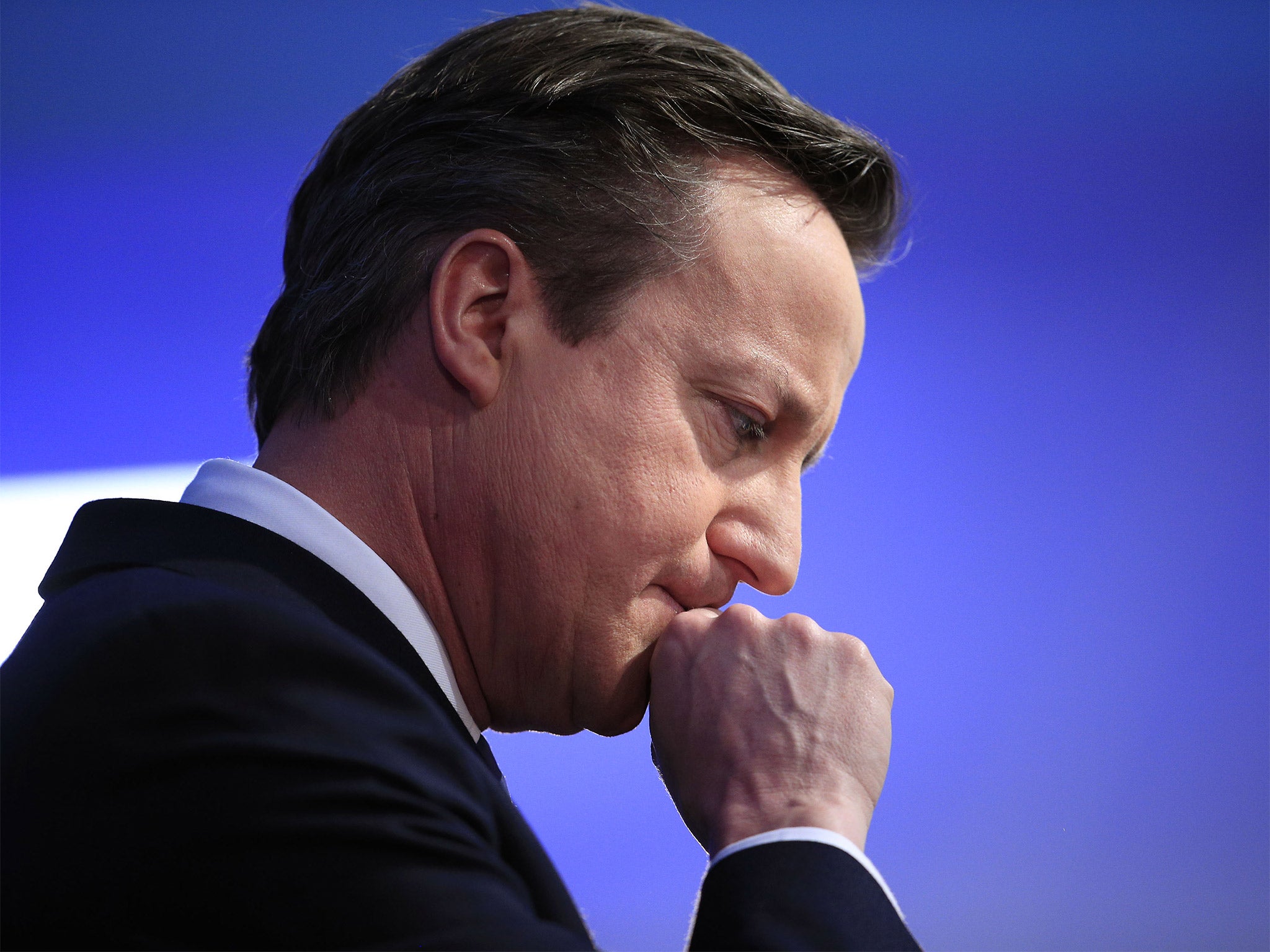Your support helps us to tell the story
From reproductive rights to climate change to Big Tech, The Independent is on the ground when the story is developing. Whether it's investigating the financials of Elon Musk's pro-Trump PAC or producing our latest documentary, 'The A Word', which shines a light on the American women fighting for reproductive rights, we know how important it is to parse out the facts from the messaging.
At such a critical moment in US history, we need reporters on the ground. Your donation allows us to keep sending journalists to speak to both sides of the story.
The Independent is trusted by Americans across the entire political spectrum. And unlike many other quality news outlets, we choose not to lock Americans out of our reporting and analysis with paywalls. We believe quality journalism should be available to everyone, paid for by those who can afford it.
Your support makes all the difference.More than 70 of Conservative MPs would be vulnerable to losing their seats in parliament to a public backlash against cuts to tax credits, new research suggests.
The Government is planning to slash the payments to low-income working families, leaving 3.2m households worse off by an average of £1,300 a year from next April.
But a total of 71 Tories have more families in their constituency set to lose from the cuts than was their parliamentary majority in May’s general election.
The figures, which were drawn up by Labour and reported in the Observer newspaper, could prove problematic for the party.
Voters could either punish the Tories at the 2020 general election, or more immediately, Conservative MPs could take fright in a bid to distance themselves from the toxic policy.
The Government only has a slim majority of 12, leaving it vulnerable to backbench rebellions.
Though Tory MPs are unlikely to rebel in a commons debate on the issue on Tuesday, the Chancellor will come under renewed pressure to do a U-turn on the cuts in his upcoming Autumn Statement.
George Osborne said earlier this month that people on low incomes would suffer if their tax credit cuts did not go ahead, however.
“Working people of this country want economic security, the worst possible thing you can do for those families is bust the public finances, have some welfare system this country can’t afford,” the told BBC Radio 4’s Today programme.
“That includes a tax credit bill that’s gone up from the £1bn when it was introduced to the £30bn today.”
David Cameron has also ruled out a U-turn on the policy.
Public opposition to the policy appears to be hardening, with a ComRes poll for the Independent On Sunday suggesting that 43 per cent disagree that the cuts are needed – compared to 34 per cent who do.
Mr Cameron effectively ruled out cutting the benefit before the election, telling a voters’ question time event that he “rejected” proposals to cut tax credits and did not want to do so.
The Government claims that a concurrent rise in the minimum wage will soften the impact of the cuts, but the Institute for Fiscal Studies has found that the policy will come “nowhere near” to compensating for the impact of tax credit cuts.
A study by the Resolution Foundation think-tank found that 200,000 children would slide into poverty immediately after the tax credit cuts go ahead.

Join our commenting forum
Join thought-provoking conversations, follow other Independent readers and see their replies
Comments